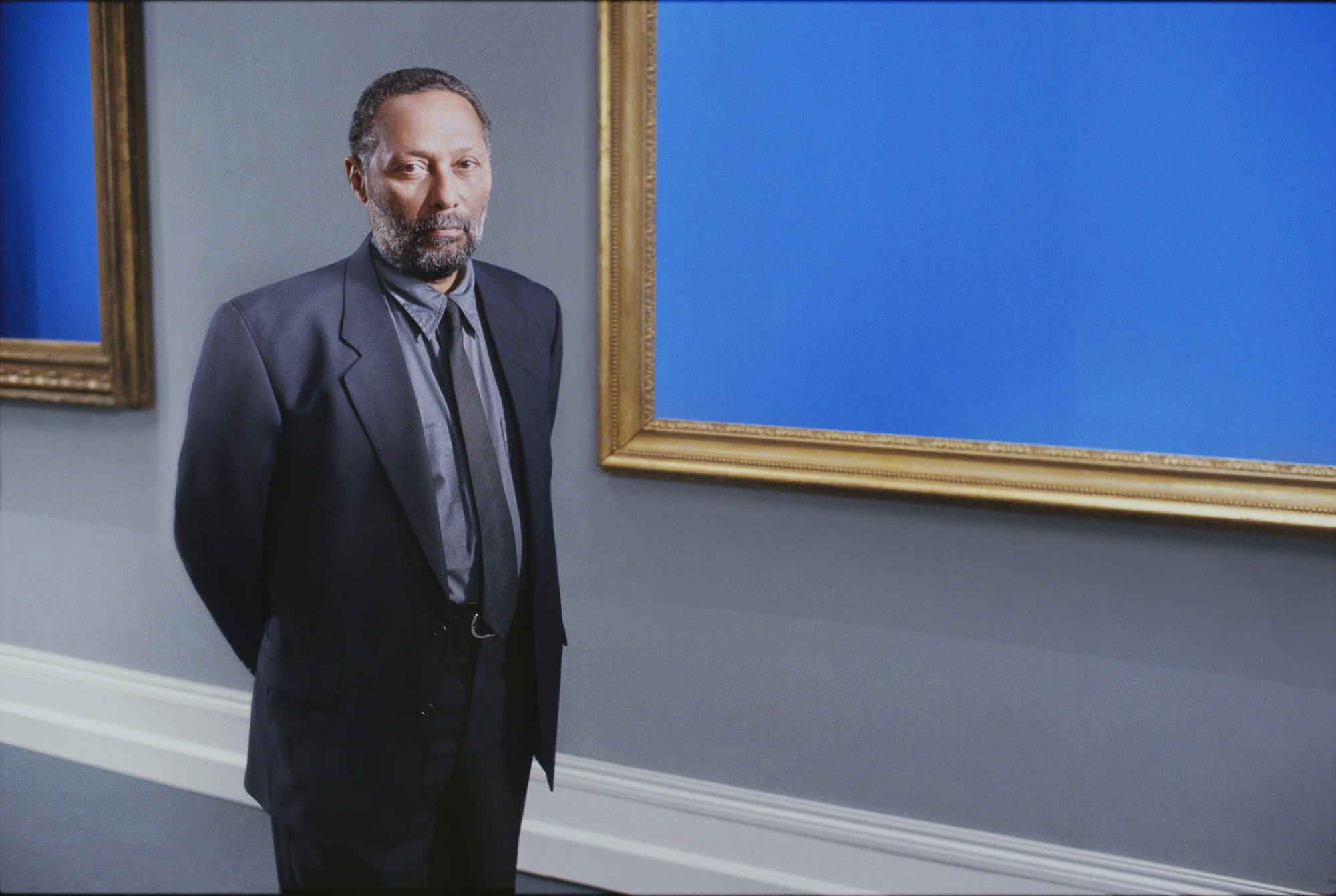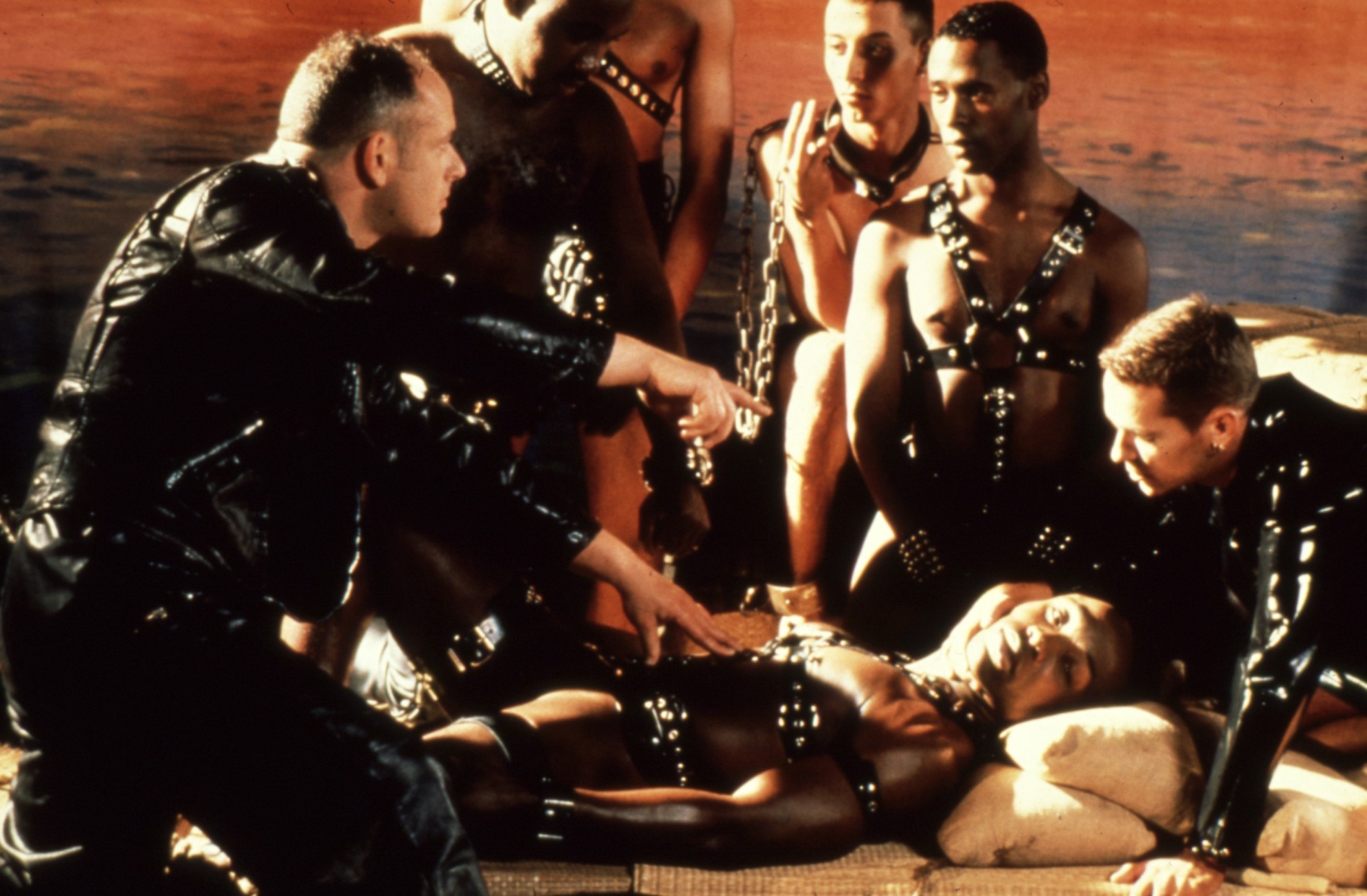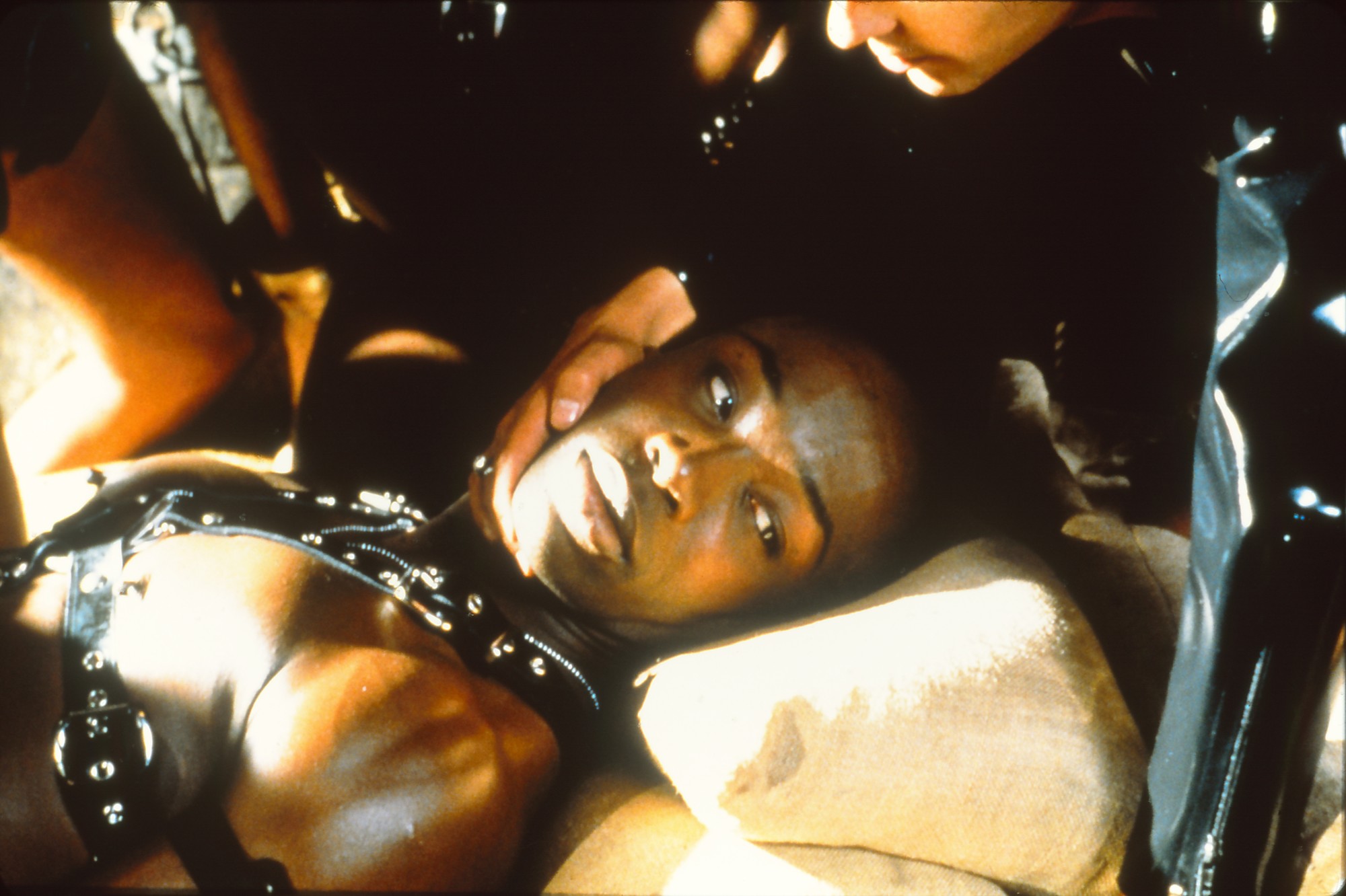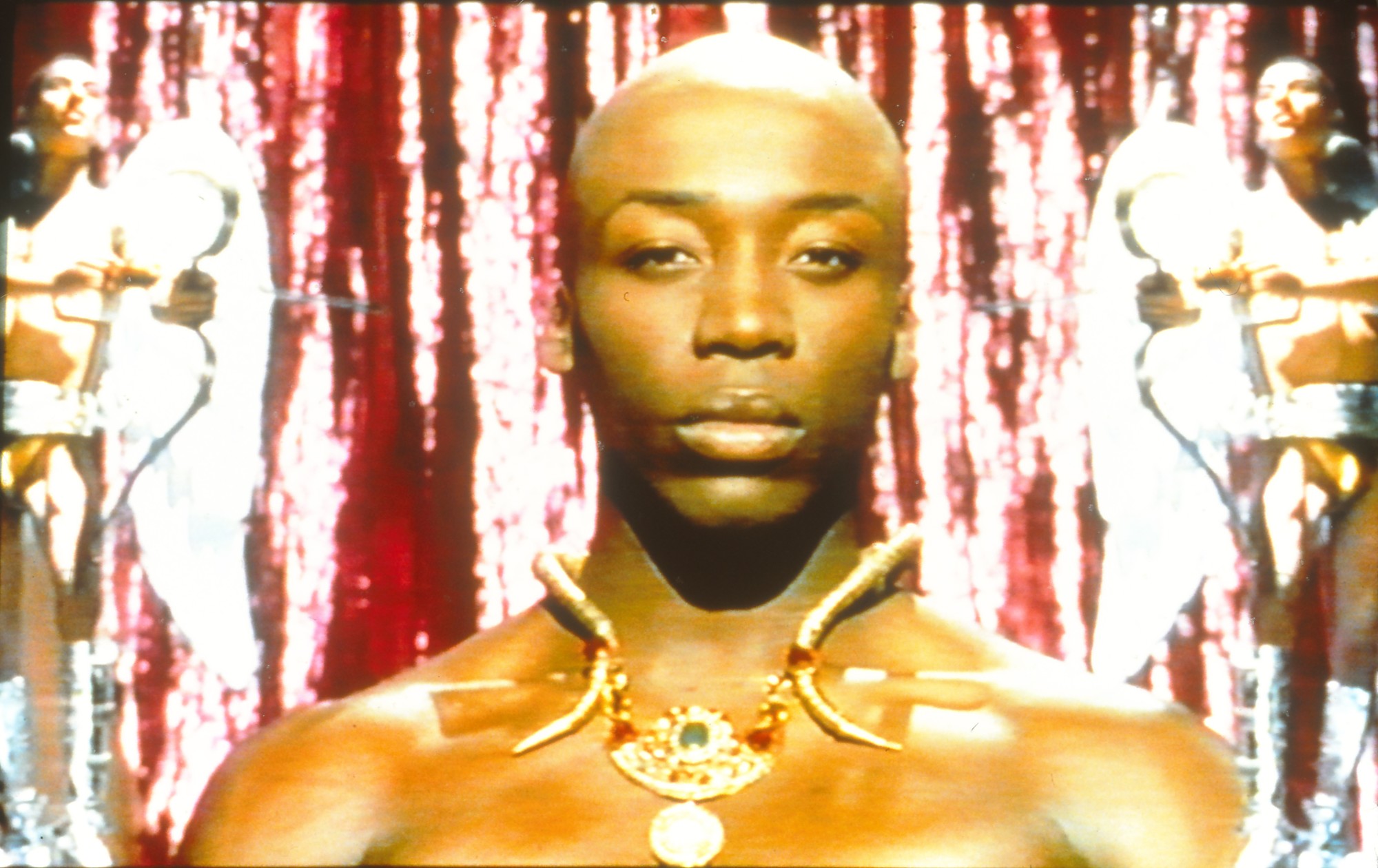The Attendant explores spatial temporalities in a museum context, commenting on queer history and racial boundaries.
"The Attendant (1993) is actually set in a museum: Wilberforce House in Hull, England, which is devoted to the history of slavery. It's a real place, though in Mr. Julien's hands it looks surreal.
The plot revolves around sexual fantasies aroused in a middle-aged black male museum guard - or attendant - by a young white male visitor. Much of the action takes place after closing time. As the guard paces the galleries, a huge 19th-century painting titled "Slaves on the West Coast of Africa", by the French artist François-Auguste Biard, comes to life, its melodramatic scene of a white master bending over a dying black slave transformed into an up-to-date, leather clad sadomasochistic grouping.
Next, there's an erotic scene between a guard and a young man in a gallery hung with soft-core drawings by Tom of Finland, one of many references to the contemporary art in the film. Their cries are overheard by a third character, a black woman called the conservator, who approvingly listens through the wall as she cleans the museum's picture frames.
The film is only 10 minutes long, but it packs in a rich variety of images and moods. They include some funky camp humour (gold-lamé bar-boy; mosquito-size Cupids), a complex sexual and racial dynamic of dominance and submission and a poignant sense of loss, which serves as a reminder that the piece was made at the height of the AIDS epidemic."
Holland Cotter, The New York Times (24 November 2006)
8'10'', 35mm film, colour, 5.1 sound








